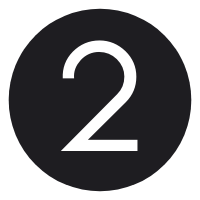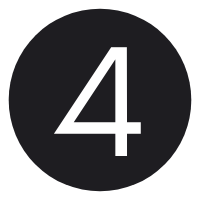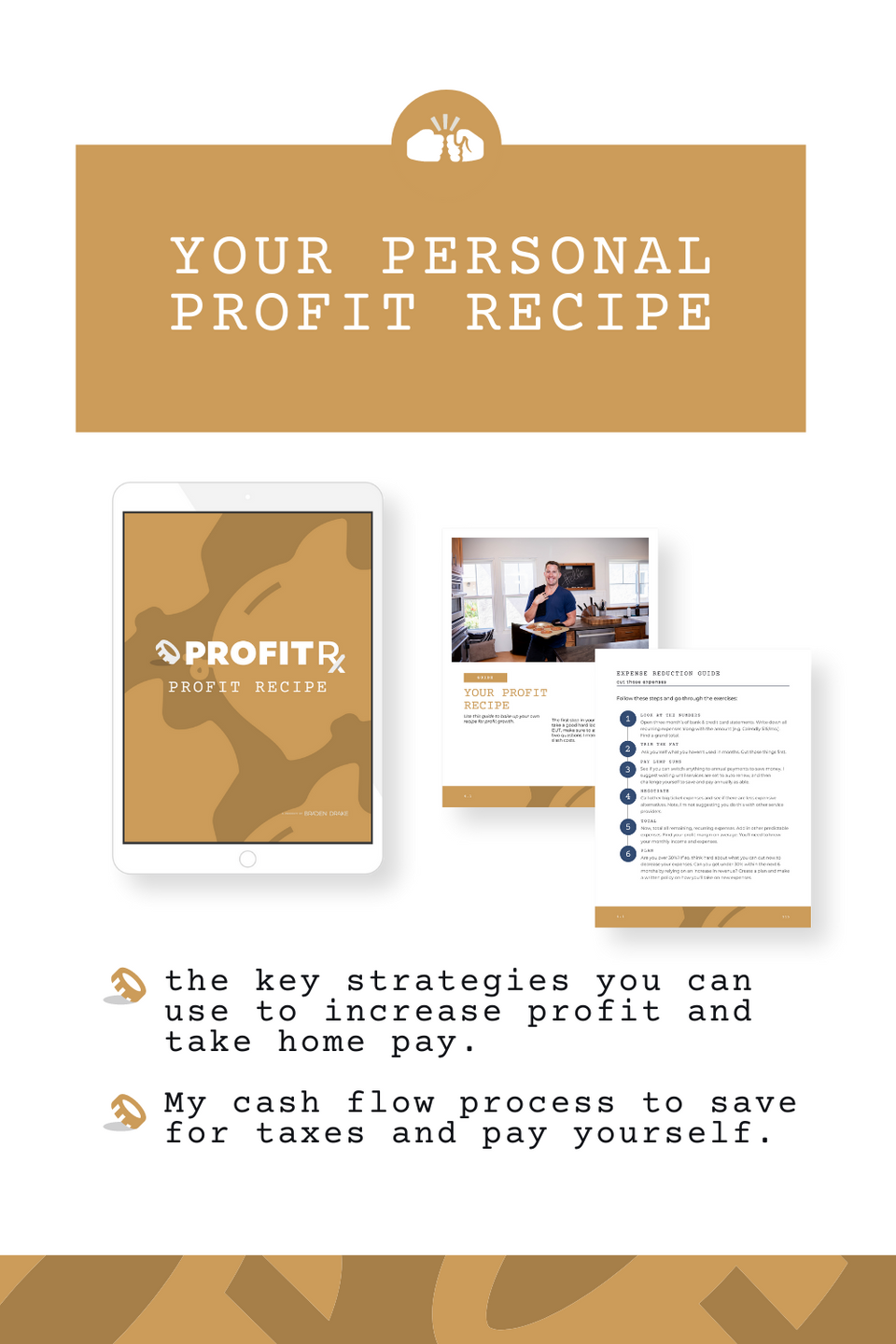Let's start with an intro
Most of us get into business and we’re super pumped. We get our website up, market on Instagram, and tell our friends and family. We've Googled. We have talked to other biz owners and freelancers about how to get rollin'. We land our first client, and it’s amazing. But then, a lightbulb goes off, and we think “uhh, what do I do with this money?”
Does it go into my personal bank account? Should I inject it straight back into my business. How does one pay themselves as a small biz owner?
Money may not be what motivates you, but we all need it. We all have bills to pay, retirement to save for, and dream vacations swirling in our minds.
When it comes to paying oneself, I see two struggles among new business owners. The first is not knowing how to take client payments and where to put the money. The second is the struggle between determining how to pay oneself and how much to pay oneself. Here’s the simple step-by-step on the basics so you can get paid and kickass.

Set up flow to pay yourself

Open your bank accounts

Set up a bookkeeping system.

Save and pay taxes

Quarterly profit payments

File your annual taxes
1. Set up flow to pay yourself
"The definition of cash flow management for business can be summarized as the process of monitoring, analyzing, and optimizing the net amount of cash receipts minus cash expenses. Net cash flow is an important measure of financial health for any business." - The Balance
Bookkeeping is the process of recording what has taken place with your money. Cash flow management is actually planning what you want to happen with your money.
Many business owners make key financial decisions in their business by just opening there online bank statement and then being like "well, shit sure, there's money in there, why not?"
Not ideal. You need how much to set aside for tax season, how much income to expect this month and next, and when your slow seasons are and how to anticipate and plan for them.
You do that through good cash flow management. I recommend setting up cash flow with three business bank account, a phone app to save for taxes and profit, and personal bank accounts. For the details on the accounts, check out and download the Worry-No-More Money Roadmap.
You will create an account called "Salary" to set aside a percentage of your business income for your salary payments. Then, every other Friday, you transfer a dollar amount from your salary account to your personal account. This will help you get on a consistent pay schedule.
Download the Profit Recipe to get rollin' paying yourself more profit.

2. Open the bank accounts
We all understand that we need, to some extent, to separate our business income and personal income. In the simplest terms, we should do this by paying all expenses from our business bank account and all personal expenses from our personal account. All business income also needs to go into your biz account. Ideally, you can go one step further using the Roadmap above to pay all expenses out of a business bank account specifically for business expenses.
Still need to open a biz account? Check out this blog I wrote on how to do that and what documents you need. Bookmark it for easy reference when you’re ready.
Your business bank transcripts should accurately reflect income in and expenses out of the business. Ideally, you could comb through your bank records and sort all debits into two categories, transfers to you the owner or your other accounts, and then every other debit would be a valid business expense. Then, you could just add up all the credits (business expenses). It’d be quick and easy to determine an estimation of your gross income and net income.
Note that after you form an LLC or corporation it’s actually required to separate your finances to maintain liability protection.
3. Set up your bookkeeping system
Every small business needs some type of bookkeeping system. It can be simple or super sophisticated. I recommend one of three options for bookkeeping which range in price. The first is to use a spreadsheet. The send option is to use a program like Quickbooks, and the third option is working with a professional. If you’re starting from scratch and need help completing build your book of business, I recommend starting with a spreadsheet and progressing to the goal of getting a bookkeeper.
4. Save and pay taxes
As small biz owners, we all need to be extra conscious about our small business taxes. I help students each tax season who need to file returns and I often see them get hit with large tax bills because of failure to plan for tax season and pay their quarterlies.
In many cases, the IRS also charges interest and penalties for failure to make quarterly tax payments. If you're not up to speed on this topic, make sure to check out my quarterly tax blog.
5. Distribute profit to yourself on a quarterly basis
In addition to saving for taxes, you also want to set aside a percentage of your income for profit. Your profit is the reward you pay to yourself as the owner of your business.
Salary = compensation for working in the business
Profit = reward for being the owner of the business
After you save the profit, you can then distribute it to yourself on a quarterly basis. I recommend doing the distribution the same time you pay quarterly taxes.
We typically think of profit payments as more of an s corp thing, but I teach all business owners how to setup their cash flow, so that, when they're ready, it's a smooth transition into an s corp.
6. File Your Taxes & Pay Any Balance
Alrighty, so now you have properly paid yourself all year. You tidied up your bookkeeping and saved and paid those quarterly taxes. All you have to do now is file! I know tax season brings fear and confusion, but it doesn't have to be all that bad. If your books are good and you have been saving, it should really be a breeze.
If you have a relatively simple business model, you can totally DIY your taxes. You can also outsource it. Either way, check back in during tax season to see what I have going on. I usually run a challenge and have some seasonal resources.
CAN WE BE BESTIES?
Have questions on the blog? Need more small biz friends? Join the Facebook Group, Braden's Besties to connect.
SIGN ME THE F UP